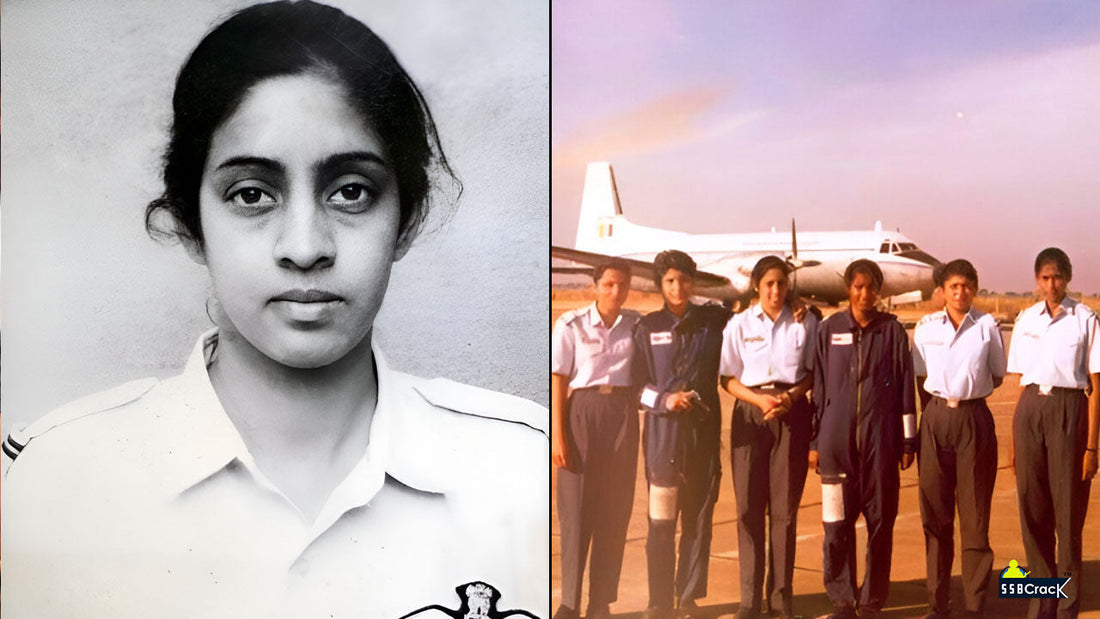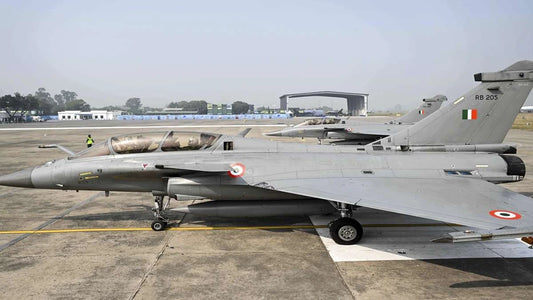Meet Flight Lieutenant Harita Kaur Deol: India’s First Woman to Fly Solo in the Indian Air Force

Flight Lt. Harita Kaur Deol was born on November 10, 1971, in Chandigarh, Punjab, into a family with deep military roots. Her father, Col. Ranbir Singh Deol, was an Army veteran, and several relatives served in the Indian Air Force, fostering her early interest in aviation. Growing up in a disciplined environment, she developed independence and confidence. She completed her graduation from MCM DAV College for Women in Chandigarh, laying the groundwork for her future career.
Career in the Indian Air Force
In the early 1990s, when the IAF opened opportunities for women as Short Service Commission (SSC) officers, Harita seized the chance. She was among the first seven women selected in 1993, undergoing rigorous training at the Air Force Academy in Dundigul, near Hyderabad, and later at the Air Lift Forces Training Establishment in Yelahanka, Bangalore. Commissioned as a Flying Officer on December 17, 1994, she specialized as a transport pilot. By 1996, she was serving with the Navigation Training School at Air Force Station Begumpet in Hyderabad.
Historic Solo Flight
On September 2, 1994, Harita made history by flying solo in an Avro HS-748, a twin-engine turboprop transport aircraft, without a co-pilot. This feat, achieved during her training, symbolized progress for women in the IAF and was widely celebrated.

Untimely Death and Legacy
Harita's life ended tragically on December 24, 1996, during a routine flight from Chennai to Hyderabad. As co-pilot, the aircraft suffered a mechanical failure mid-flight, leading to a crash near Dubagunta village in Andhra Pradesh. Despite her brief career, her pioneering role has been acknowledged as paving the way for women in aviation, with ongoing discussions about expanding opportunities amid evolving policies.
A Trailblazer in Military History
Flight Lt. Harita Kaur Deol stands as a trailblazer in Indian military history, embodying courage, determination, and the breaking of gender barriers in aviation. Born into a Sikh family with strong military ties, Harita's early life was shaped by her father, Col. Ranbir Singh Deol, and her relatives in the Air Force. This environment instilled in her discipline and an affinity for the skies from a young age. She pursued her education at MCM DAV College for Women in Chandigarh, where she graduated, equipping herself with the academic foundation needed to chase her ambitious dreams.

The early 1990s marked a pivotal shift in the IAF's policies, influenced by societal changes and the need for inclusivity in the armed forces. In 1991, under Air Chief Marshal N.C. Suri, the IAF began inducting women as Short Service Commission officers for non-combat roles. Harita applied and was selected in 1993 as part of the inaugural batch of seven women cadets for the 1 SSC (W) FP Course, focused on transport piloting. Her training was intensive, beginning at the Air Force Academy in Dundigul and later at the Air Lift Forces Training Establishment in Bangalore. She excelled, proving her mettle alongside male counterparts.
Harita’s defining moment came on September 2, 1994, when, at just 22 years old, she became the first woman to fly solo in the IAF. Piloting an Avro HS-748, she took off without a co-pilot, ascended to 10,000 feet, and landed successfully at Yelahanka. This achievement shattered stereotypes and highlighted women’s capabilities in high-stakes roles. Commissioned as a Flying Officer on December 17, 1994, she continued to build her career, serving with the Navigation and Signals School (now Navigation Training School) at Begumpet by 1996. Peers remembered her as a “sterlingly good officer” and a passionate aviator.
Tragically, on December 24, 1996, during a routine flight as co-pilot aboard Avro HS-748 (registration H-1032), she was transporting the No. 3 Air Force Band from Chennai to Hyderabad after a Passing Out Parade at Air Force Station Tambaram. Midway over Nellore district in Andhra Pradesh, the aircraft suffered a catastrophic failure: fatigue in the support of the right engine’s jet pipe damaged the fuel pipeline, ignited a fire, and fractured the right wing. Despite efforts to control the plane, it crashed near Dubagunta village, killing all 24 on board. At 25, Harita became the first female IAF pilot to die in the line of duty.

Her legacy extends beyond her achievements, serving as a beacon for women’s empowerment in the armed forces. Her solo flight paved the way for future milestones, such as women flying fighter jets in 2016 and commanding combat units by 2023. Social media tributes, especially on Women’s Day and her death anniversary, highlight her enduring inspiration. By 2018, female participation in the IAF had reached 13.09%.
Timeline of Women’s Milestones in the IAF
| Year | Milestone | Details |
|---|---|---|
| 1972 | First woman promoted to Wing Commander (Medical Branch) | Vijayalakshmi Ramanan became the first in a permanent commission role. |
| 1991 | Decision to induct women as SSC officers | Initiated by Air Chief Marshal N.C. Suri, starting with non-combat roles. |
| 1993 | First batch of women pilots inducted | Harita Kaur Deol among seven selected for transport training. |
| 1994 | First solo flight by a woman | Harita’s historic Avro HS-748 flight on September 2. |
| 2016 | Women inducted as fighter pilots | Avani Chaturvedi, Bhawana Kanth, and Mohana Singh became the first. |
| 2018 | Female representation reaches 13.09% | Growth in roles across branches, including logistics and education. |
| 2019 | First all-women helicopter crew | Flight Lt. Parul Bharadwaj led a medium-lift mission. |
| 2023 | First woman to command a frontline combat unit | Group Capt. Shaliza Dhami took command in the Western sector. |
| 2024 | First woman to fly Tejas fighter jet | Mohana Singh Jitarwal achieved this milestone. |
Conclusion
Harita Kaur Deol’s journey was both inspiring and tragic, embodying the courage, ambition, and resilience of women breaking barriers in the armed forces. Though her life was cut short, her pioneering flight and enduring spirit paved the way for future generations of women in aviation, ensuring her place as a foundational figure in India’s defence history.



















